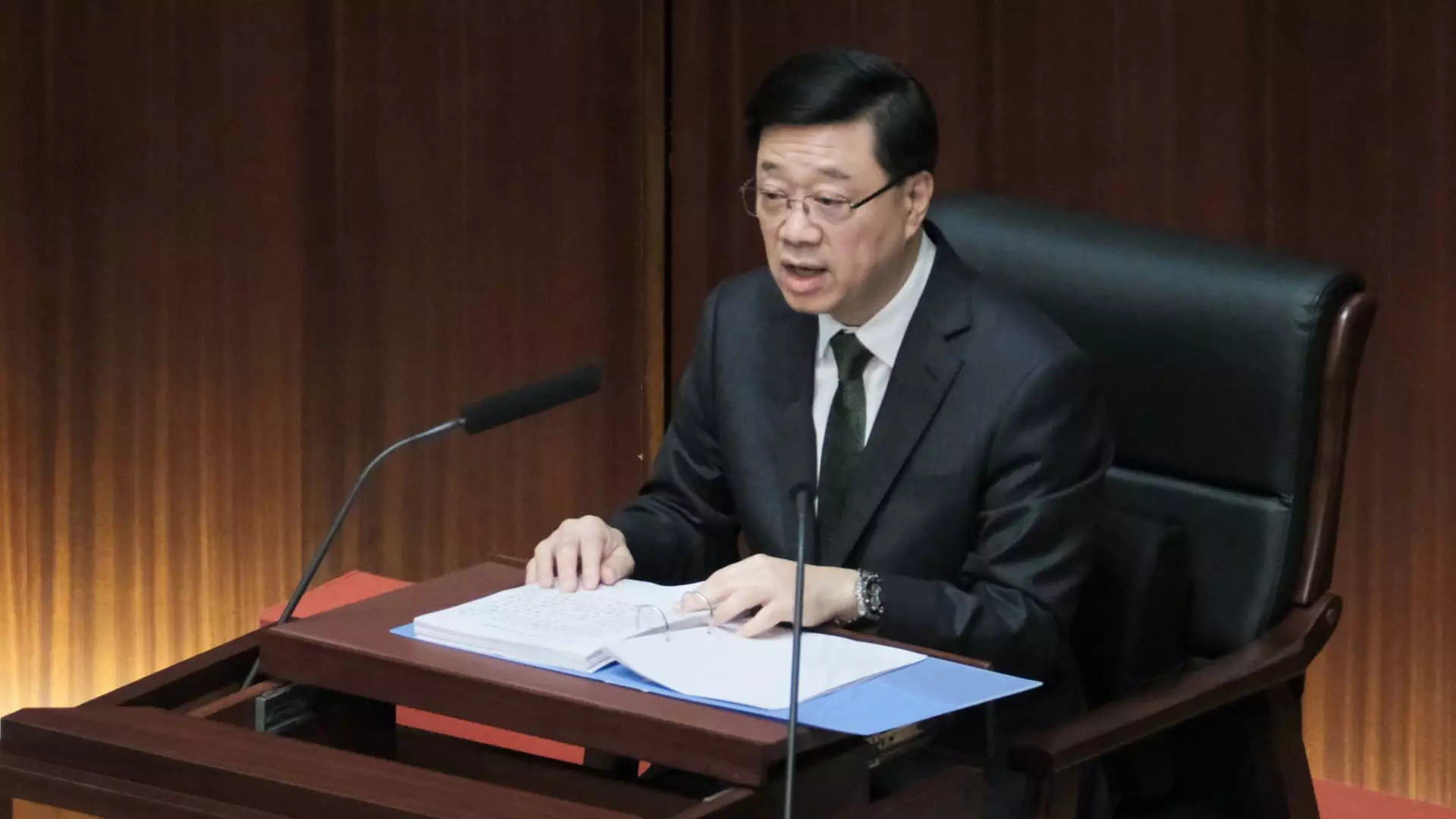Hong Kong has been grappling with an acute housing affordability crisis for years, marked by soaring property prices and a limited supply of affordable housing options. The situation has reached a tipping point, prompting public outcry and rising concern, particularly among younger residents. Chief Executive John Lee has acknowledged this pressing issue as one of “great public concern” in his recent annual policy address, highlighting the need for immediate and effective solutions.
As the city continues to face challenges related to high-density living and limited land availability, the announcement of housing policy changes has become essential. These changes intend to alleviate the struggles of those under 40 years of age, a demographic that has found it increasingly difficult to secure a foothold in the competitive real estate market. With many young individuals feeling disillusioned by the prospect of homeownership, the government is under pressure to revamp the current housing initiatives.
One of the most significant proposals presented by Chief Executive Lee was the introduction of an additional ballot number for applicants aged below 40 applying for the subsidized Home Ownership Scheme (HOS) flats. This innovative measure aims to increase the probability that younger applicants will secure housing, providing them a better chance to navigate Hong Kong’s tumultuous housing landscape.
Moreover, the government plans to expand the quota for the “White Form Secondary Market Scheme,” which facilitates the buying and selling of secondhand subsidized flats without the need for a land premium. The proposed increase of 1,500 units exclusively for applicants under 40 is a crucial step towards tackling the rampant housing unaffordability experienced by this age group. Given that only 4,500 households were eligible for flats under this scheme in 2023, the government’s push for greater accessibility is indeed welcomed.
In addition to direct homeownership assistance, the Lee administration is committed to continuing the Youth Hostel Scheme. This program promotes collaboration with non-governmental organizations to rent hotels and guesthouses as affordable accommodation for young people. Such initiatives are vital in attempting to mitigate the harsh realities of living in a city renowned for its exorbitant rent prices.
The 2024 Demographia International Housing Affordability report serves as a sobering reminder of the urgency of these measures; it has named Hong Kong the least affordable city for housing for over a decade. The prevalence of “shoe-box sized” subdivided flats highlights the desperate housing conditions many citizens face, often linked to serious health and safety concerns. The urgency of the situation warrants that the government takes decisive action.
Taking a more systematic approach, Chief Executive Lee proposed a new regulatory framework for renting subdivided flats. The intention is to redefine “substandard” housing units into “Basic Housing Units.” These will have to meet specific minimum requirements, including adequate window space, sanitation facilities, and a minimum size of 86 square feet. Such measures are critical for ensuring that no resident lives in hazardous conditions that endanger their health and safety.
Moreover, Lee pledged to expedite the construction of public housing units, with a target of completing around 30,000 new units by 2027-2028. The government hopes to reduce the current wait time of 5.5 years for public housing to approximately 4.5 years by the 2026-2027 timeframe.
In his third policy address within his five-year term, Lee has steered the narrative away from issues of national security and post-pandemic recovery towards creating a more favorable living environment for Hong Kong residents. While the focus on housing policy reforms signals a significant shift in priorities, the successful implementation and effectiveness of these measures remain to be seen. How effectively these strategies will meet the urgent demands of a rapidly urbanizing population is crucial for Long-term economic stability and social contentment in Hong Kong. Ultimately, addressing housing affordability is not merely about bricks and mortar but is intrinsically tied to the aspiration and prospects of a generation facing daunting challenges.

Leave a Reply